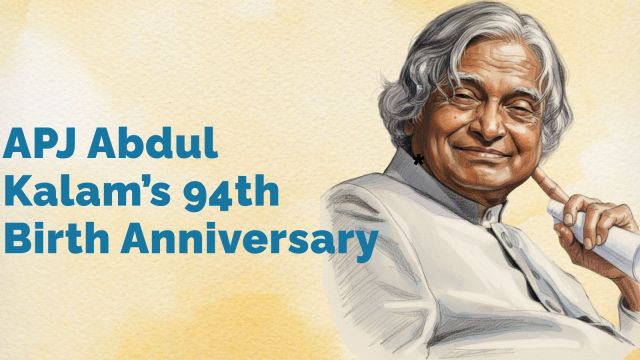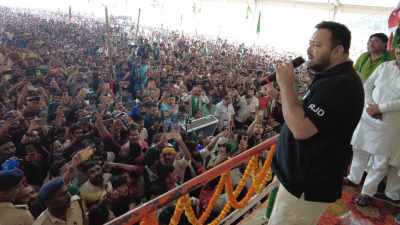APJ Abdul Kalam’s birth anniversary today, India’s most-beloved teacher
The birth anniversary of the former President Dr APJ Abdul Kalam and the celebrations surrounding it encourages reflection on how India can continue to make learning more inclusive and impactful.
 Why is it celebrated — APJ Abdul Kalam's legacy and more (AI-generated)
Why is it celebrated — APJ Abdul Kalam's legacy and more (AI-generated)“If the people remember me as a good teacher, that will be the biggest honor for me..,” Dr APJ Abdul Kalam often used to say.
Every year on October 15, India celebrates the birth anniversary of Dr APJ Abdul Kalam, one of the country’s most admired scientists, educators, and former Presidents. The day is marked as a tribute not only to his achievements in science and public service but also to his lifelong commitment to inspiring and guiding students.
This day is dedicated to encouraging young minds to pursue excellence and innovation in their chosen fields, just as Dr Kalam envisioned.
While many believe that the United Nations has designated October 15 as World Students’ Day, the UN actually observes October 15 as the International Day of Rural Women, with no official recognition of a students’ day.
National Students’ Day: Dr APJ Abdul Kalam’s beginnings, education
Born on October 15, 1931, in the small town of Rameswaram, Tamil Nadu, Dr Avul Pakir Jainulabdeen Abdul Kalam came from a humble background. His father was a boat owner and imam at the local mosque, while his mother managed the household.
Despite limited means, young Kalam’s curiosity and determination were evident from an early age. He completed his schooling at Schwartz Higher Secondary School, Ramanathapuram, and went on to graduate in physics from St Joseph’s College, Tiruchirappalli, in 1954. Driven by his fascination with flight, he pursued aeronautical engineering at the Madras Institute of Technology (MIT).
Dr APJ Abdul Kalam — Legacy and work
Kalam began his career at the Defence Research and Development Organisation (DRDO) in 1960, working on hovercraft prototypes, before moving to the Indian Space Research Organisation (ISRO), where he directed India’s first satellite launch vehicle (SLV-III).
Under his leadership, India successfully launched the Rohini satellite into orbit in 1980 — a milestone that established India’s indigenous space capabilities. He later returned to DRDO to lead the country’s integrated missile programme, earning him the title of ‘Missile Man of India’.
In 2002, Dr. Kalam became India’s 11th President, serving until 2007. His tenure was marked by accessibility, humility, and a strong connection with citizens — especially the youth. He transformed the largely ceremonial role into an active platform for dialogue and inspiration, often addressing students and urging them to dream big. His vision for India, outlined in his book India 2020, revolved around transforming the country into a developed nation through education, science, and innovation.
Even after his presidency, Kalam remained deeply engaged with academic and research institutions. He frequently addressed students across India, often beginning his talks with stories from his own life — about perseverance, teamwork, and the power of imagination. One of his officially recorded interactions was in Tiruppur in 2003, where he spoke about “noble leadership” and “indomitable spirit.”
During his later years, Kalam set himself a personal goal of meeting and motivating over one lakh students across the nation. He believed that India’s development depended on the creativity and courage of its youth, and he saw education as the most powerful tool to unlock that potential.
His death on July 27, 2015, at the Indian Institute of Management Shillong — while delivering a lecture to students — was perhaps symbolic of his lifelong mission. Even in his final moments, he was doing what he loved most, as many noted, teaching and interacting with young minds.
The birth anniversary of the former President and the celebrations surrounding it encourages reflection on how India can continue to make learning more inclusive and impactful. It also prompts teachers, institutions, and policymakers to uphold Kalam’s vision of holistic education — one that combines knowledge with ethics, creativity with curiosity, and ambition with compassion.
As India celebrates this day, the words of Dr Kalam continue to resonate: “Dream, dream, dream. Dreams transform into thoughts, and thoughts result in action.”






- 01
- 02
- 03
- 04
- 05

























